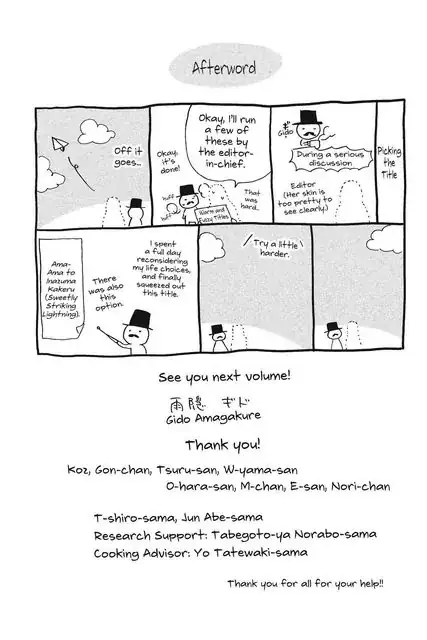The English title of the series Sweetness and Lightning is a pun on the idiom "sweetness and light".
The original Japanese title is Amaama to Inazuma (甘々と稲妻). I wanted to find out if there was a similar pun behind the Japanese title, so I started by looking up the words and was surprised to find that it's basically a literal translation of the English title: amaama means "sweet" or "sugary" and is the character 甘 (sweet) repeated, and inazuma means "lightning".
Without some kind of pun or joke behind it similar to the one in English, the Japanese title seems like sort of a strange combination of words to hit upon. It's such a direct equivalent to the English title that it almost looks like the English title was conceived of first and then translated back into Japanese, but that doesn't make sense because if the original author Gido Amagakure had come up with the English title, that would probably just be the title, since so many anime are named in English already.
I'm curious if there are any linguistic reasons to pick the Japanese title. I'm not asking for thematic reasons; the title is thematically appropriate in both languages, even without the pun. I'm asking why there was such a suitable pun in the English version that apparently didn't exist in the Japanese title, and whether the Japanese version also contains some pun or reference that I've missed. Was the fact that it translates so well into English just a massive coincidence? Is there something more to the Japanese title that I'm not seeing?
